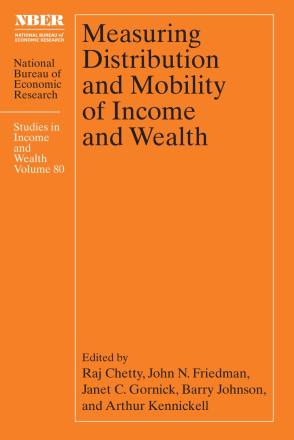The EITC and Linking Data for Examining Multigenerational Effects

We study how the largest federal tax-based policy intended to promote work and increase incomes among the poor—the Earned Income Tax Credit (EITC)—affects the socio-economic standing of children who grew up in households affected by the policy. Using the universe of tax filer records for children linked to their parents, matched with demographic and household information from the decennial Census and American Community Survey data, we exploit exogenous differences by children’s ages in the births and “aging out” of siblings to assess the causal effect of EITC generosity on child outcomes. We focus on assessing upward mobility in the child income distribution, conditional on the parents’ position in the parental income distribution. Our findings suggest significant and mostly positive effects of more generous EITC refunds on the next generation that vary substantially depending on the child’s household type (single-mother or married family) and by the child’s gender. In this paper, we detail how we define the variation in EITC generosity, explain the construction of the intergenerational link and sibling groups, and provide summary statistics and estimates of average intent-to-treat effects.
-
-
Copy CitationRandall Akee, Maggie R. Jones, and Emilia Simeonova, Measuring Distribution and Mobility of Income and Wealth (University of Chicago Press, 2021), chap. 18, https://www.nber.org/books-and-chapters/measuring-distribution-and-mobility-income-and-wealth/eitc-and-linking-data-examining-multigenerational-effects.Download Citation


